Coral reef scientist seeks to protect and restore marine ecosystems
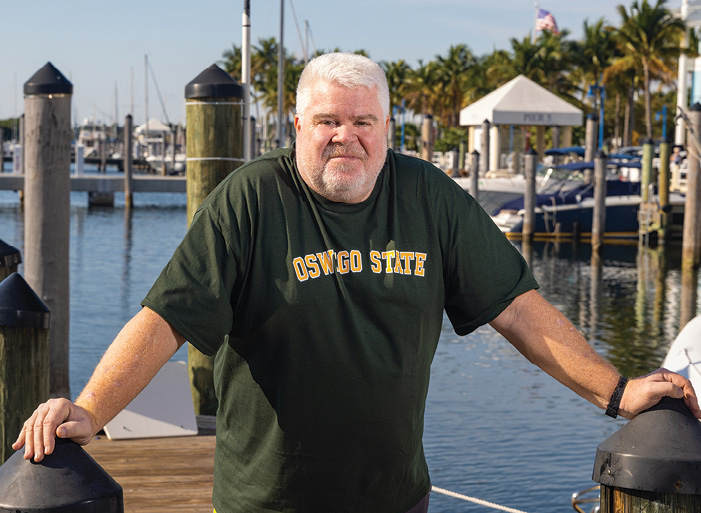
Perhaps it was the 100 inches of snow that fell in Oswego in January 1978 that solidified his memory, but William Precht ’79 can clearly recall when his life changed forever.
He was sitting in a sand patch on the coral reef at Jamaica’s Discovery Bay Marine Lab waiting to complete a check-out dive with his classmates. They had to show their scuba skills were adequate to do the open water diving, so they could gather research on the coral reefs for their SUNY Oswego coursework.
“I was just looking at the coral reef around me,” he said. “I never had this feeling before. It was just awe-inspiring. I got back to the boat to where Professor Dave Thomas was, and I looked at him and I said, ’How can I do this the rest of my life?’”
That 1978 spring break trip set him on course to become one of the leading researchers on coral reefs, seagrasses and mangrove ecosystems in the world today.
Diving In
Prof. Thomas laid out the academic path Precht would need to follow to achieve this new goal, and Precht went all in. (See related story on Geology Prof. Dave Thomas.)
Precht admitted that until that point, he had never fully applied himself to academic studies. But after that conversation on the boat with Prof. Thomas, he became laser-focused on performing well in his remaining classes.
Precht also earned the respect of Thomas and other professors who wrote him letters of recommendation to get into graduate school—an option he never envisioned for his future prior to that trip abroad.
Precht went on to earn a master’s degree in earth science from Adelphi University, a certificate in carbonate sedimentology from the Colorado School of Mines and graduate credits in coral reefs and geology from the University of Northern Colorado, and he completed all but his dissertation in the doctoral program at the University of Miami Rosenstiel School of Marine, Atmospheric and Earth Science.
Since graduating from the University of Miami, Precht has spent the past 30 years in the Miami, Fla., area working on everything from environmental impact statements to monitoring coastal marine ecosystems to see how they change over time. A certified PADI Open Water SCUBA diver since 1974, he has logged more than 5,000 scientific dives, with 4,750 dives on coral reefs and associated ecosystems.
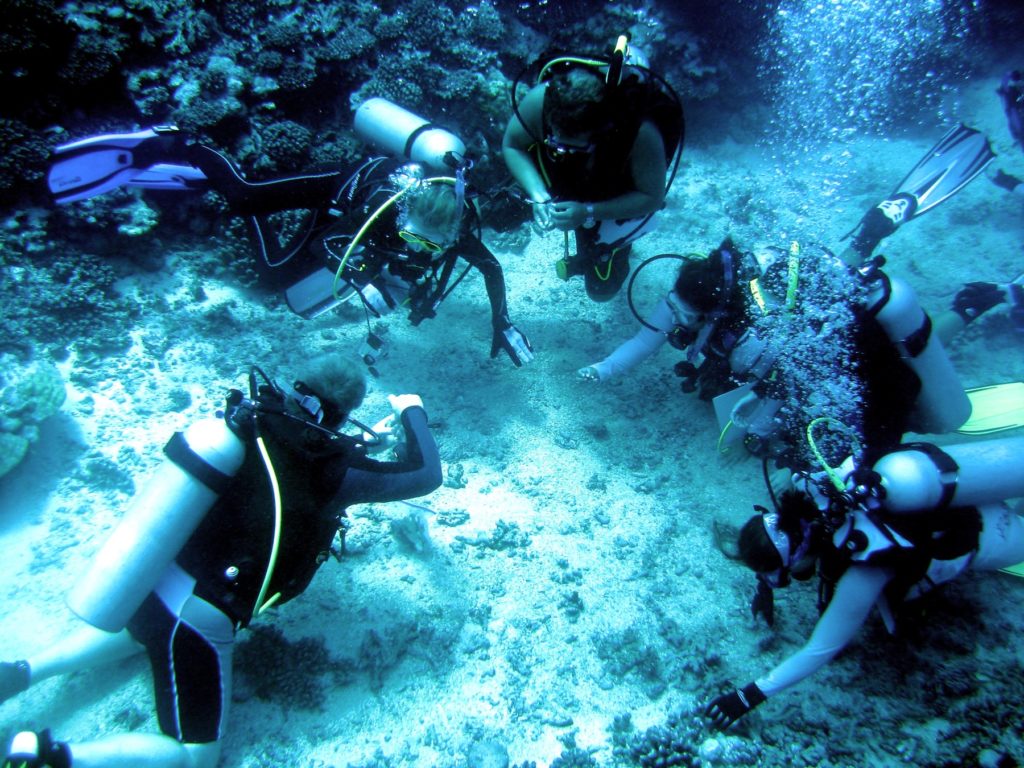
Precht (lower left) examines coral in Jamaica’s Discovery Bay Marine Lab with students from Northeastern.
Masterdiver in his Field
“Bill has published over 375 technical reports and a couple of books about corals, coral reefs and other marine habitats,” said Dan Savercool ’84, a zoology major and a manager of water and natural resources at EA Engineering, Science and Technology, Inc. “That is a phenomenal everlasting legacy that is available to scientists, decision makers and the interested public—and will be for many, many years.”
Precht is featured in National Geographic’s four-part television series, Strange Days on Planet Earth, narrated by Hollywood actor Edward Norton, and in the Emmy award-winning New Mexico PBS documentary, Desert Reef. He authored two books, including the seminal Coral Reef Restoration Handbook—The Rehabilitation of an Ecosystem under Siege (CRC Press, 2006).
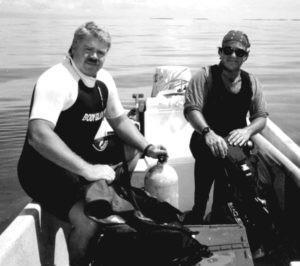
Precht (left) with Rich Aronson in Belize
“He’s world-class on a lot of levels,” said long-time research partner and friend Richard B. Aronson, Ph.D., professor and head of the Department of Ocean Engineering and Marine Sciences at the Florida Institute of Technology. “He has encyclopedic knowledge on the science of coral reefs and instant recall of the literature.”
The pair had both been studying the coral reefs at Discovery Bay Marine Lab since the late 1970s and met there in 1987 when Precht was conducting research as a graduate student at the University of Miami and Aronson, a young professor at Northeastern University, was leading a group of students in field study.
Precht, a geologist by training, asked to tag along to visit an ancient coral reef that he had studied with Prof. Thomas during their trip to Jamaica nine years earlier.
“I agreed, but, in exchange, he had to do a little talk about the reef to my students,” Aronson said. “Well, I quickly discovered how animated and engaging he is as a teacher.”
That interaction led to Precht becoming an adjunct professor in Northeastern University’s Three Seas – East/West Marine Biology Program, where he has taught a course in coral reef ecology for 33 years.
“He is a brilliant instructor,” Aronson said. “He’s very good with the students. He’s sociable, outgoing, extraordinarily kind and a mentor to his students. They adore him. He’s just a really great guy.”
A trip to Belizean coral reefs in the late 1980s was pivotal to their career trajectories, as the changes they witnessed to the coral reefs over a decade were so dramatic and devastating that they felt compelled to investigate what was happening to these critical elements in coastal marine ecosystems. This 35-year partnership has resulted in the pair authoring over 100 scientific manuscripts on coral reefs.
For a day job, Precht developed a career in environmental consulting, with expertise in environmental resource management, coastal and ocean policy, mitigation planning, marine and freshwater habitat restoration, and environmental regulation, but he never ventured far from his true love—coral reefs.
An Anchor Line for the Future
Precht said he studies history and ancient reefs to better understand what’s happening today.
“He literally discovered a disease—stony tissue loss disease—that was destroying certain corals along the East Coast, and it has spread to the Caribbean,” Aronson said.
The disease attacks soft tissue of at least 22 species of reef-building corals, killing them within weeks or months of becoming infected.
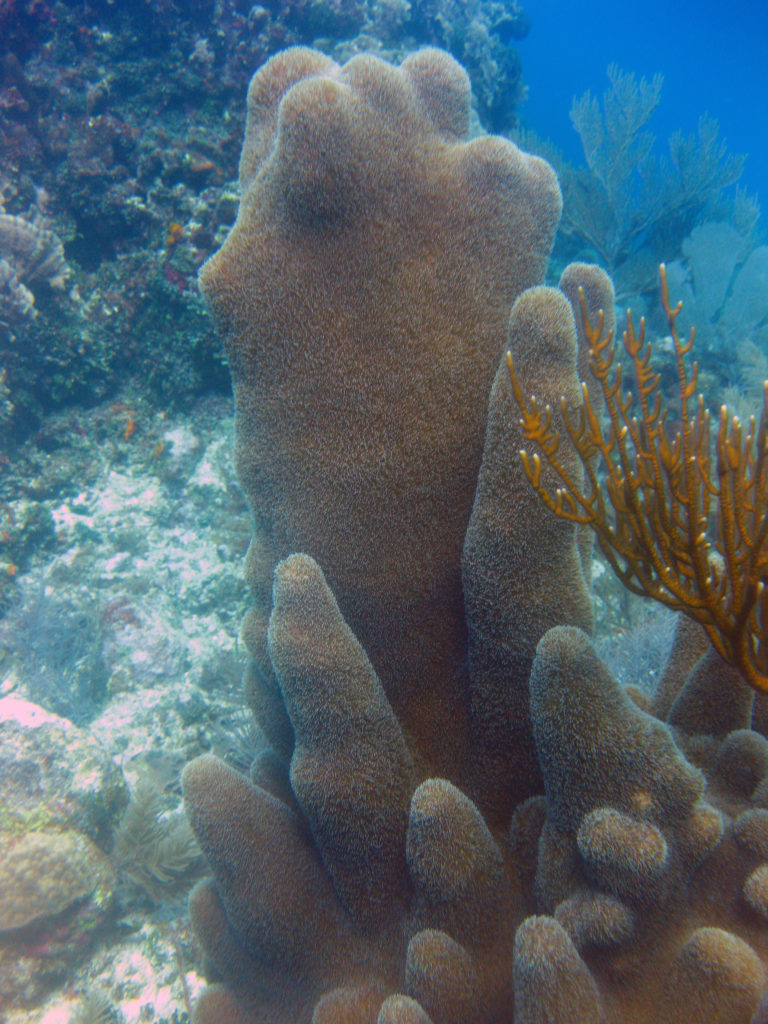
Caribbean pillar coral off Belize coastline
The coastal marine ecosystem has seen a 95 percent decline in the coral population since the 1970s. Coral used to cover more than 50 percent of reefs 50 years ago, but today covers only 3 percent, which is problematic on many fronts. Coral reefs provide underwater structure for fish and aquatic life to hide from predators. Those fish also provide food for humans, and coral reefs are the feature attraction in a multibillion-dollar tourism industry worldwide, according to Precht.
“From a biodiversity standpoint, coral reefs are the rainforests of the sea,” Precht said. “There are more marine organisms that live on a coral reef than anywhere else in the marine environment.”
Today, as director of Marine and Coastal Programs with Dial Cordy and Associates, Inc., he helps restore coral reefs and marine ecosystems that have been damaged by things like oil spills and ship groundings. He also helps assess the environmental impact of coastal development, port expansions and military installations.
After decades of collecting data about changes in the coral populations throughout Florida and the Caribbean, Precht said the evidence is clear that the dramatic decline of coral reefs is tied directly to global warming.
“We have to get global carbon emissions under control,” he said. “Failure to do that will eventually lead to the demise of not just coral reef ecosystems on a global scale, but other ecosystems, as well. While depressing, there are solutions, and we must act globally before it’s too late.”
Precht serves on the Scientific Advisory Panel of the Coral Restoration Foundation in the Florida Keys to restore damaged reefs by transplanting corals grown in nurseries.
“While we’re not fixing coral reefs at the ecosystem scale level yet, there have been dramatic advances in the genetics and coral husbandry techniques,” Precht said. “The more we learn about these ecosystems, the greater success we’re having and will have.”
This optimism drives him to work on solving these complex problems. But ultimately, Precht’s greatest contribution might come in the form of his ability to inspire and educate today and tomorrow’s leaders.
For example, all three of his daughters have pursued careers in sustainability: his eldest, Lindsey, is the assistant director of the Environment & Sustainability Department for the City of Miami Beach; his middle daughter, Chandler, is an adjunct professor and the associate director for the Sustainability Management + Science Programs at Columbia University’s Earth Institute; and his youngest, Madison, is a senior at Drew University majoring in environmental sustainability and journalism.
“My dad’s contributions to environmental science—particularly in the field of marine geology in the Caribbean region—are incomparable,” said Lindsey Precht. “He is a true conservationist and it shows in everything he does and all the lives he’s touched. I’m always amazed at how far his reach is and how many young marine scientists he has influenced.”
You might also like
More from Featured Content
Vision for the Future
VISION for the Future Peter O. Nwosu began his tenure as the 11th president of SUNY Oswego, building on the solid …
Envisioning the Potential in All Students
ENVISIONING the Potential in All Students Educator donates $2 million in recognition of his Oswego education, in support of future teachers Frank …
A Vision of Support
A VISION of Support Award-winning principal makes an impact on her school through her positivity and commitment When Nicole Knapp Ey ’02 …

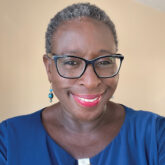


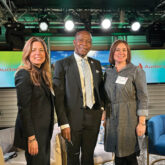
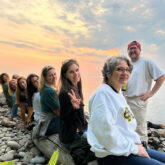
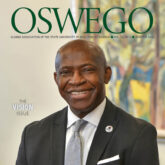
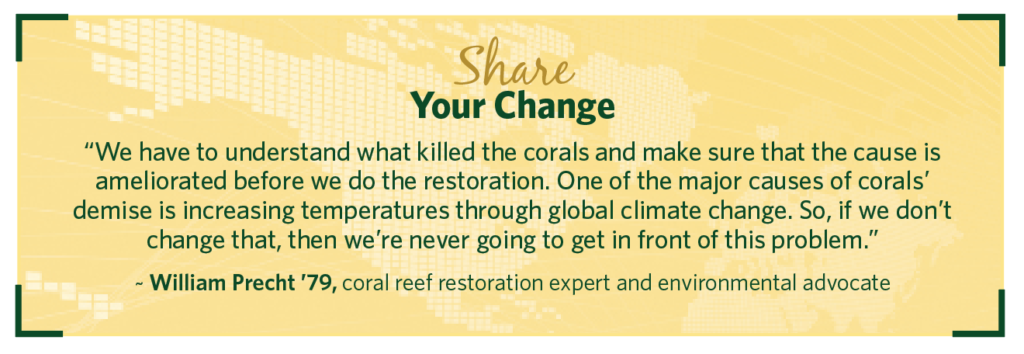
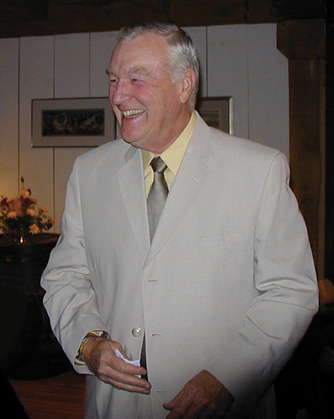
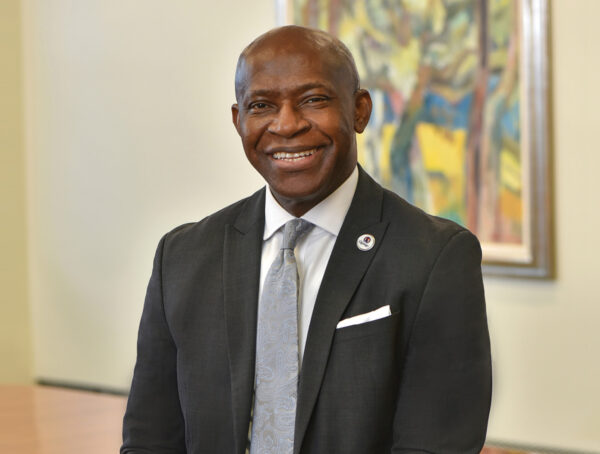
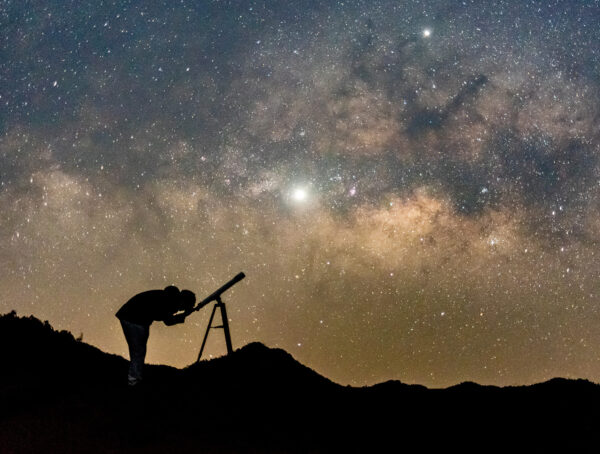



Leave A Reply
[…] A professor and former chair of the Earth Sciences Department, he often led his students on field trips to examine lower Paleozoic fossils throughout Upstate New York. He also took some students, including William Precht ’79, to study underwater fossils along the coast of Jamaica during spring break (see related story). […]